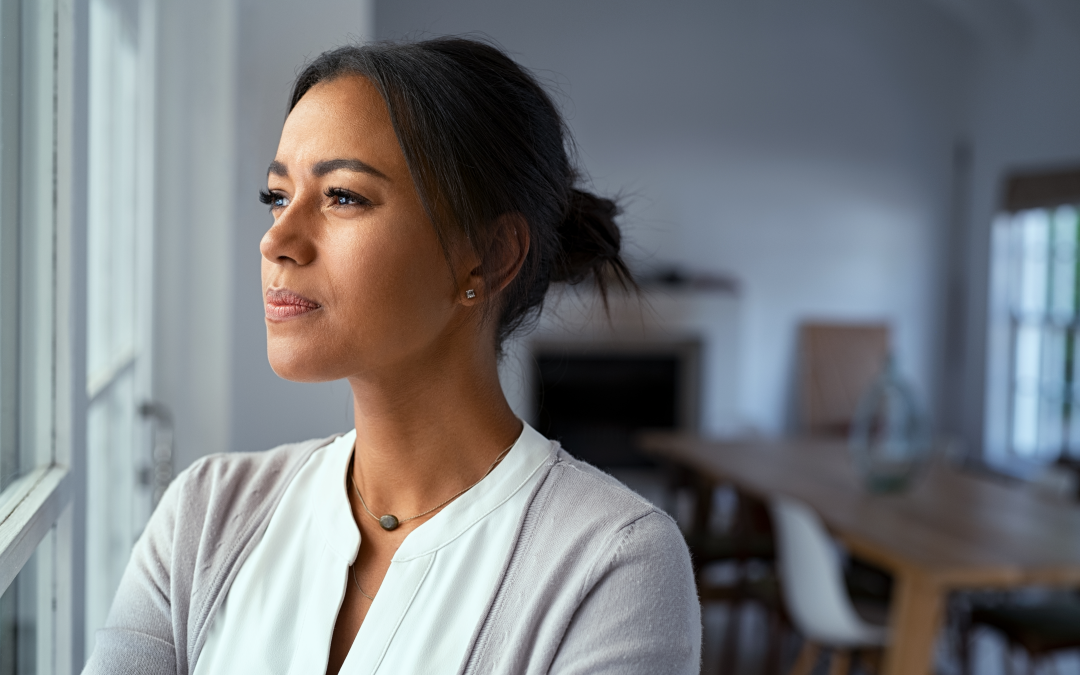This week marks mental health awareness week, a time to tackle stigma and encourage conversations to help people better understand mental health.
The relationship between domestic abuse and mental health is inherently connected, with domestic abuse having complex and long-lasting impact. A report by SafeLives estimated that only 10-30% of mental health cases linked to domestic abuse are actually identified as being related to domestic abuse, which means victim-survivors are not always getting access to the support needed.
In some cases, this can unfortunately result in suicide. While the extent of domestic abuse-related suicides is largely unknown, there has been a documented increase in the risk of suicide in victim-survivors of abuse. National charity Refuge warns that women in particular are at risk, and that women who experience abuse are twice as likely to experience depression, and estimate that around 3 women a week die by suicide as a result of domestic abuse.
Recently, the Domestic Homicide Report announced that the number of people suspected to have taken their own lives after experiencing domestic abuse was the biggest cause of death for victims, and had surpassed the amount of people killed by their partner for the second year in a row.
The report found that 98 people were suspected of having committed suicide following abuse in the year to March 2024. However, Refuge, said they “expect these figures to represent only the tip of the iceberg as suicides caused by domestic abuse continue to be severely under-reported.”
Janice Fife, Operations Director at LDVS says: “Deaths by suicide overtaking intimate partner homicide for the second year running is deeply concerning, but sadly unsurprising. At LDVS, we work with thousands of people experiencing domestic abuse each year, and know just how detrimental domestic abuse is to mental health, leaving many victims isolated and feeling they have no way out.
We want to see justice for all victims for domestic-abuse related suicide hope to bring awareness to this vital issue mental health awareness week.”
Earlier this year, Ryan Wellings became the first person to go on trial following his ex-partner, Kiena Dawes’, suicide. Despite him being found not guilty, Assistant Commissioner, Louisa Rolfe, the national policing lead for domestic abuse and other senior police officials, said they want to see other abusers face similar charges in future. This is welcome progress, but we must call on all authorities to continue to drive change and provide necessary and appropriate support to victim-survivors.
At Leeds Domestic Violence Service, we help victim-survivors to access appropriate mental health services, and support them with range of needs. This also includes our team of Complex Needs IDVAs (Independent Domestic Violence Advocate) who provide specialist support to suit individual’s unique needs. Our 2023 Impact Report found that 59% of people who had been supported by a Complex Needs IDVA had mental health vulnerabilities.
We also closely with organisations which offer various groups, providing space to share experiences with people who have gone through similar situations, and build up victim-survivors self-esteem and confidence.
This mental health awareness week, check in on yourself and those around you and know where you can reach out for support if you need it.
For confidential support or advice about domestic abuse, call our helpline anytime on 0113 246 0401.
If you need support with your mental health, call Samaritans anytime on 116 123 for support or visit:
Leeds Mental Wellbeing Service (LMWS) – MindWell (mindwell-leeds.org.uk)
Leeds Community Healthcare NHS Trust – Home
In an emergency ring 999.
Resources:
Women’s Health Matters Services
https://www.bbc.co.uk/news/articles/cgr284ev7vro
https://refuge.org.uk/news/refuge-responds-to-the-new-domestic-homicides-and-victim-suicides-report/
https://www.womensaid.org.uk/the-reality-of-the-barriers-to-mental-health-support/
https://www.mentalhealth.org.uk/explore-mental-health/statistics/domestic-violence
https://www.bbc.co.uk/news/health-48541604
https://safelives.org.uk/research-policy-library/safe-and-well/

Recent Comments